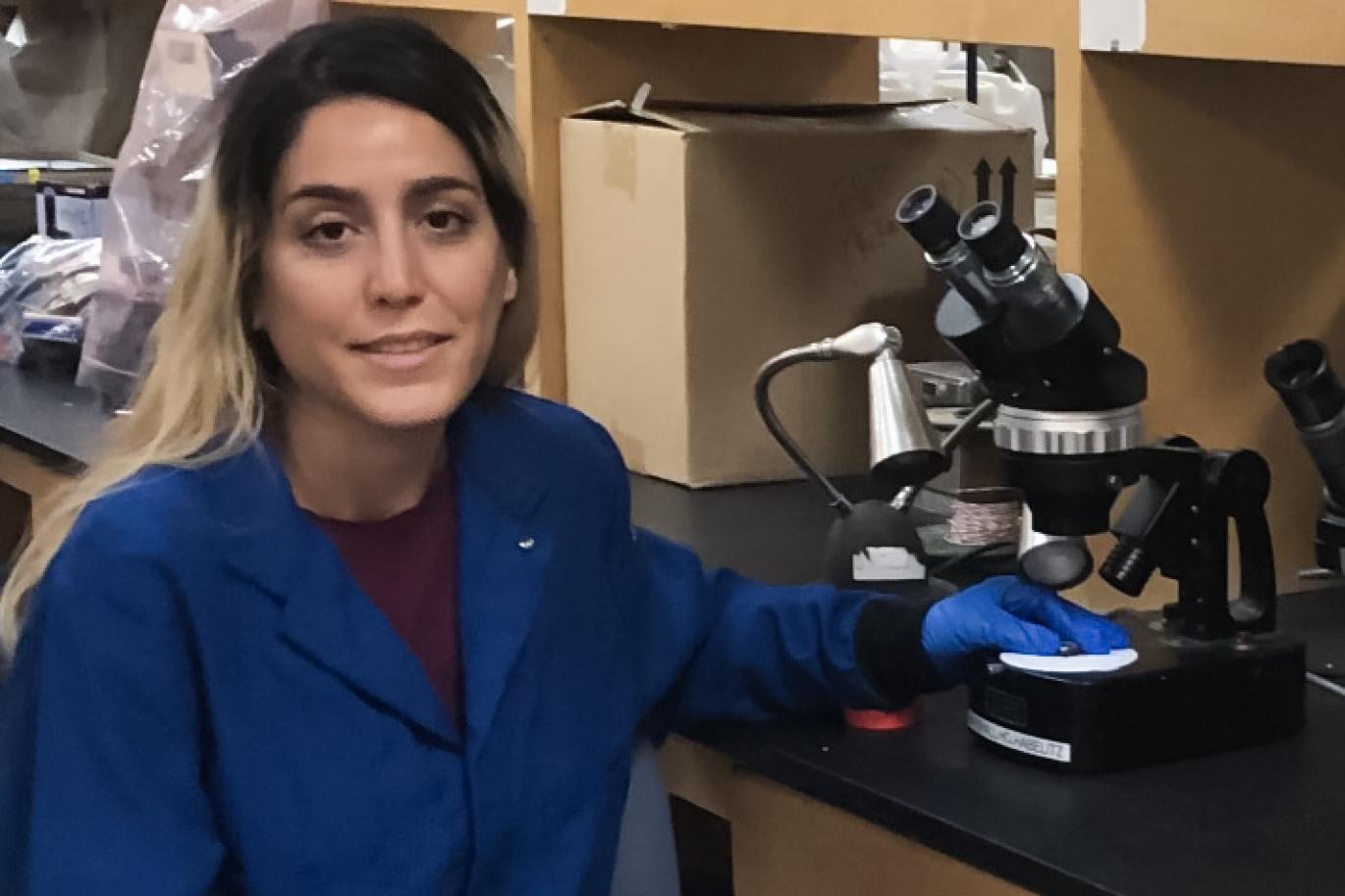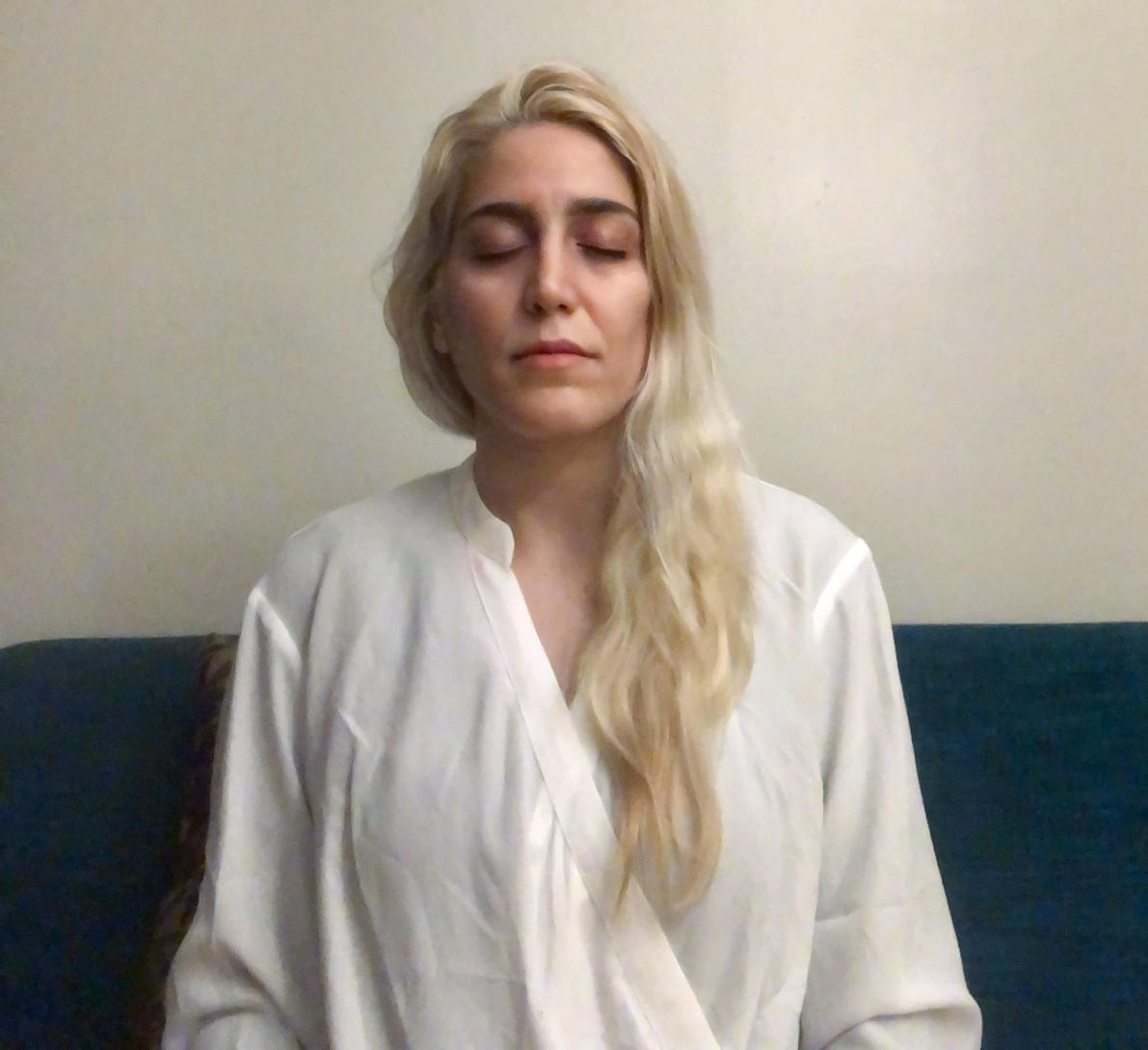Online Mindfulness Classes as a Remedy for Pandemic-related Isolation

Dr. Ellie Babaie, a UCSF postdoctoral scholar, moved to the US from Teheran, Iran, to pursue her education. As the pandemic took hold in early 2020, she found herself far from family and suddenly isolated from her local community. Dr. Babaie shares that, “COVID added to my stress and made it worse because I was totally isolated from other people. I started having panic attacks and waking up in the middle of the night. I started feeling depressed. I got to the point where I needed external resources and help.” She tried meditation apps, but they weren’t enough. She wanted to find a more permanent strategy than the medication her provider recommended. She recalled reading a book in which the author mentioned taking Mindfulness-based Stress Reduction. A quick search led her to the UCSF Osher Center’s program. “I thought, this is the best thing I can have during COVID.”
The Osher Center’s Mindfulness-based Stress Reduction (MBSR) classes moved online in 2020. Reviewing students’ feedback from six completed cohorts confirmed for Judith Cuneo, MD, director of mindfulness programs at the Osher Center, “the importance of the class community, especially at this time when we are all so isolated.”

Bonnie O’Brien Jonsson, Dr. Babaie’s MBSR instructor, and a teacher in the program since 2002, shared that teaching online was a new experience for her. She was impressed: “The Zoom class was a wonderful experience—much more than I had thought possible. The intimacy of the Zoom class was similar to the in-person classes I’ve taught. It was preferable for many because they didn’t have to commute. In these days of COVID sheltering, the class was a gift.” Feedback from participants across online cohorts shows that while some would prefer attending in-person class when it is safe to do so in the future, others are only able to participate online (often due to their location or health conditions) or simply prefer the convenience of joining from home.
While Dr. Babaie would have preferred to attend in-person if it had been safe to do so, the online option was critical to her well-being during the pandemic: “I wasn’t sure that I should do it because it’s online, but I needed it so I did and it was a great experience for me. Now I’m calmer and actually more confident. I can do things that before I was afraid of doing.” She shared her strategy for enhancing her online experience: “I noticed that when I put it in gallery view it helped me more. I felt more connected. Bonnie [the instructor] would put us into breakout rooms, and it was good because I talked with different people and heard their story. It showed me I’m not the only one struggling and made me grateful for what I have.” Participants reported unforeseen benefits of joining from home, sharing that they felt more relaxed than they would have if they had needed to commute, that participating in their home environment helped them cultivate more durable new habits, and that they enjoyed the diversity of meeting people who were participating from across the country.
Dr. Babaie also reflects on the benefit of feeling supported by her experienced teacher at this complex time. The instructor’s reflections helped reframe the material and practices when she encountered difficulties. Ms. O’Brien Jonsson reflects, “I love teaching because I am inspired by witnessing people embody mindfulness. Oftentimes people fall in love with the practice through experiencing a relief from their habits of pushing and pulling and keeping their lives moving, moving, moving. I see faces relax and smiles appear on faces that wore worry lines and frowns in the first week of class. People come to the class with the goal of reducing stress in their lives. I say the side benefit can be relaxation but the real benefit is waking up to the moments of life.” Like many participants have reported in past cohorts, MBSR helped online participants manage chronic pain, stabilize their moods, reduce stress, and feel more focused and relaxed.
Dr. Babaie’s experience reflects the broader impact of the class beyond reducing stress. “What I was looking for, I got it. My depression was gone after the class. Stress in general is less. I’m still dealing with that, but I am managing it. I feel like I’m more in the moment. Before I was rushing things. I’m enjoying food and walks more and listening to other people and really hearing what they say. Life’s more enjoyable.”
When it is safe to do, the Osher Center will resume offering in-person MBSR courses alongside online courses. To learn more about Mindfulness-based Stress Reduction or to sign up for an upcoming cohort, visit https://osher.ucsf.edu/public-classes/mindfulness-based-stress-reduction-mbsr

